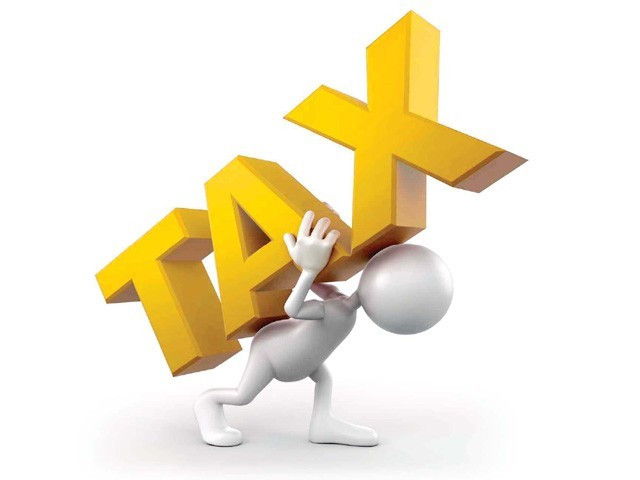Taxes and impact on aggregate demand
Since poor have high propensity to consume, regressive taxes reduce their level of consumption

Taxes are indispensable for the functioning of a state as it provides essential services and acts as a source of provision of necessary public goods. State power also manifests itself through taxes.
Therefore, the state should extract and collect taxes from all social classes. However, it is relative easier to collect taxes from the masses while powerful lobbies and groups get away with them.
The tax base plays a significant role in collecting taxes. If the tax base is broad, tax rate will fall. On the other hand, a thin tax base compels the government to increase the tax rate. Since the tax base is slim, the government is bound to increase tax rates in Pakistan. In addition, the tax-to-GDP (gross domestic product) ratio has been hovering around 9% since long.
The tax base is directly linked with the level of economic activity. If there is an increase in economic activity, the tax base will increase. If the economic activity stops intermittently, the tax base will shrink.
As far as the case of Pakistan is concerned, the economy moves three steps forward and two steps backward. The economic activity could not be increased in a sustained manner. Hence, the tax base remains slim.
When the economy experiences a downturn, tax revenue quickly falls while there is inertia in expenditure. As the tax revenue falls and expenditure remains intact, the budget deficit will increase. Even if the government puts in extreme effort to reduce the budget deficit, the result will come out in the form of a large deficit. Hence, the longer the recession, the larger will be the budget deficit.
The composition of direct and indirect taxes in total tax revenue is 37% and 63%, respectively. The withholding component takes a lion's share in direct taxes where tax is deducted at source with minimal effort. Voluntary compliance is low while enforcement is weak. That is the reason the successive governments have kept on relying on indirect taxes to meet revenue targets.
The case of general sales tax (GST) is instructive here. GST was introduced in the early 1990s in lieu of tariffs. When tariff rates were reduced under the Structural Adjustment Programme (SAP) of the International Monetary Fund (IMF), the government had to resort to GST. It was imposed on manufacturing and import stages.
Earlier, the GST was restricted to durable and non-durable items, while food, clothing and electricity remained exempted for a decade. GST rates were at around 12% in the beginning. The government had to increase the rates and coverage as time passed.
It brought basic food items, clothes and utilities in this fold. The GST was increased to 15% and remained at 17% for a considerable period of time. It was raised to 18% in February 2023. So much so, the share of GST is around 40% in the total tax revenue.
The GST is regressive which means that the people with low income will face the storm. The poor segment of the population has been bearing the greater burden as basic food items, clothing and utilities gobble up their budget share. Hence, the poor are finding it hard to make ends meet.
The lesson of history is that the aggregate demand plays an important role in sustaining the level of economic activity. Since the poor have a high propensity to consume, the regressive taxes reduce their level of consumption. As they make up most of the population, it reduces the overall consumption and hence the economic activity.
In short, the design of tax policy should take into account the equity considerations. The challenge for policymakers is to gradually increase the tax base. This is possible through an increase in aggregate demand, which will increase the level of economic activity. Let's see how things unfold in the future.
The writer is an independent economist who worked at SDSB, Lahore University of Management Sciences (LUMS)



















COMMENTS
Comments are moderated and generally will be posted if they are on-topic and not abusive.
For more information, please see our Comments FAQ